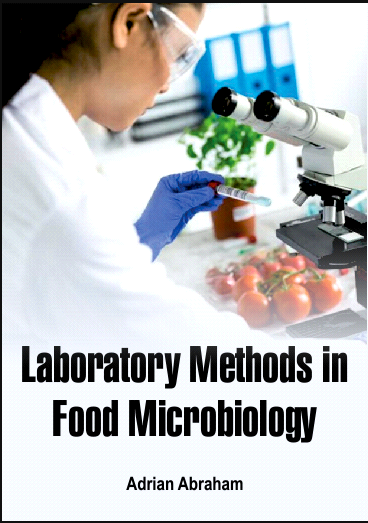Food and Dairy Microbiology--A new title presents a through and accessible account of various microbes associated directly or indirectly with the food and dairy products. Food microbiology is mainly concern with production of food, beverages, cheese, yogurt, tempeh, kimchi, beer and wine, etc. with the use of microbes. As most people are aware, microbes can also cause food spoilage. This area of food microbiology is of major economic importance. Food microbiology also deals with the detection and prevention of food-borne disease. Some of the organisms commonly involved in foodborne outbreaks include Escherichia coli, Staphylococcus aureus, Listeria and Salmonella, etc. Food microbiology is the study of microorganisms that inhabit and helps to create or damages the food. Similarly, the microorganisms contribute in order to continue different food chains occurring in different ecosystems. the keeping quality and safety of food will depend on upon the success of preventing the entry of microorganism, and of restarting their growth. in contrast to this, certain foods are inoculated with a large number of specific microorganisms. Microorganisms are of the great importance in the food and in the production of food items. Microorganisms are of great significance to foods due to various reasons some of them are. A professional in dairy field is incomplete without the fundamental knowledge of Dairy Microbiology, which covers the important area of quality management of raw materials and finished products and help in checking the processing efficiency. It also helps in dairy product manufacture through use of selected microorganisms (as starter cultures) and prevent the entry of harmful pathogens to the products, thereby proving the need and importance of Dairy Microbiologists. Important food items produced in a whole or part by the biochemical activities of microorganisms include pickles, olives,
چکیده فارسی
میکروبیولوژی مواد غذایی و لبنیات--عنوان جدیدی شرحی از میکروبهای مختلف را ارائه میکند که به طور مستقیم یا غیرمستقیم با غذا و محصولات لبنی مرتبط هستند. میکروبیولوژی مواد غذایی عمدتاً به تولید مواد غذایی، نوشیدنی ها، پنیر، ماست، تمپه، کیمچی، آبجو و شراب و غیره با استفاده از میکروب ها می پردازد. همانطور که بیشتر مردم می دانند، میکروب ها نیز می توانند باعث فساد مواد غذایی شوند. این حوزه از میکروبیولوژی مواد غذایی از اهمیت اقتصادی عمده ای برخوردار است. میکروبیولوژی مواد غذایی همچنین با تشخیص و پیشگیری از بیماری های منتقله از غذا سر و کار دارد. برخی از ارگانیسمهایی که معمولاً در طغیانهای غذایی درگیر میشوند عبارتند از اشریشیا کلی، استافیلوکوکوس اورئوس، لیستریا و سالمونلا، و غیره. میکروبیولوژی مواد غذایی مطالعه میکروارگانیسمهایی است که ساکن هستند و به ایجاد یا آسیب رساندن به غذا کمک میکنند. به طور مشابه، میکروارگانیسمها به ادامه زنجیرههای غذایی مختلف که در اکوسیستمهای مختلف رخ میدهند کمک میکنند. حفظ کیفیت و ایمنی غذا به موفقیت در جلوگیری از ورود میکروارگانیسم ها و شروع مجدد رشد آنها بستگی دارد. در مقابل، غذاهای خاصی با تعداد زیادی میکروارگانیسم خاص تلقیح می شوند. میکروارگانیسم ها در غذا و در تولید اقلام غذایی اهمیت زیادی دارند. میکروارگانیسم ها به دلایل مختلف برای غذاها اهمیت زیادی دارند. یک متخصص در زمینه لبنیات بدون دانش بنیادی میکروبیولوژی لبنیات ناقص است، که حوزه مهم مدیریت کیفیت مواد اولیه و محصولات نهایی را پوشش می دهد و به بررسی کارایی فرآوری کمک می کند. همچنین با استفاده از میکروارگانیسمهای منتخب (به عنوان کشت آغازگر) به تولید محصولات لبنی کمک میکند و از ورود پاتوژنهای مضر به محصولات جلوگیری میکند و در نتیجه نیاز و اهمیت میکروبیولوژیستهای لبنی را اثبات میکند. مواد غذایی مهمی که به طور کامل یا جزئی توسط فعالیت های بیوشیمیایی میکروارگانیسم ها تولید می شوند عبارتند از ترشی، زیتون،
ادامه ...
بستن ...
1684695988 9781684695980
ادامه ...
بستن ...










